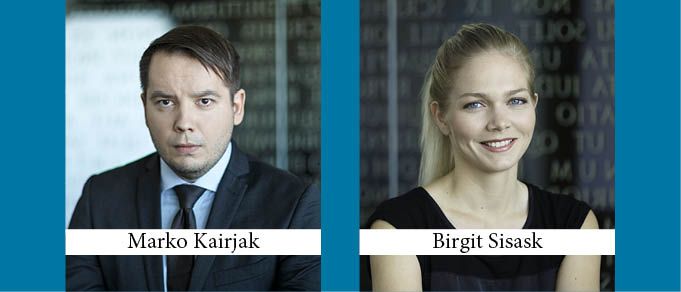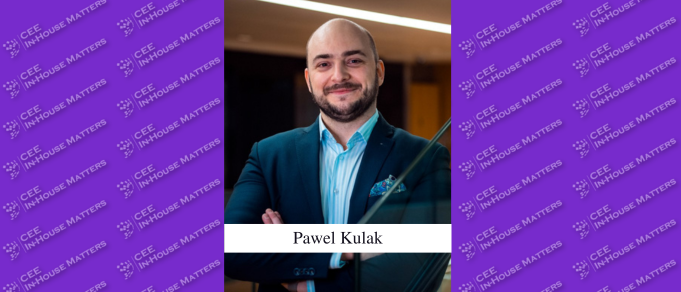A number of modifications to Romanian fiscal legislation implemented on January 1, 2016, have had significant effects on both taxpayers and competent authorities. The most important of these modifications target the transfer pricing policies and the VAT payment mechanism and have had a direct effect on fiscal litigations.
Split VAT - To Be Or Not To Be
Romanian Government Ordinance no. 23/2017 regarding split VAT payment entered into force on October 1, with its provisions being optional until the end of 2017. On January 1, 2018, the Ordinance becomes mandatory.
Anti-Corruption Developments in Russia in the First Half of 2017
In 2016, Russian law enforcement authorities had some success in investigating and combatting bribery. For the first time in several years, the majority of cases involved bribe-taking, rather than bribe-giving, and involved significant bribe amounts. The number of cases against bribe-takers increased by 19.7% from 2015, while the number of cases against bribe-givers increased by only 4.4%. This trend continued in the first half of 2017; the Russian Ministry of Internal Affairs and law enforcement authorities registered 3,362 cases of bribery, of which 2015 cases concerned bribe-taking and 1,347 cases concerned bribe-giving.
Lithuania Continues its Fight Against Corruption and Money Laundering
Money laundering and corruption are closely related; therefore, they should be tackled systemically. Lithuania’s setting in these areas is rather ambiguous – it is ranked among the top performers when it comes to an anti-money laundering regime and its effectiveness, but it performs worse than EU average when it comes to the perception of corruption (Lithuania was ranked 38th in the Global Corruption Perceptions Index reported by Transparency International in 2016).
Combatting Corruption in Ukraine: International Context and Domestic Developments
Combatting corruption has been declared a primary goal in Ukraine following the Revolution of Dignity in 2014. Slowly, but steadily, Ukraine’s reputation as a country with a serious corruption problem is improving.
Applicability of Foreign Anti-Bribery and Corruption Legislation and Statutory Provisions in Turkey
Foreign investors willing to invest in Turkey and Turkish companies listed on foreign stock exchanges or which have a business relationship with foreign companies are under the obligation to comply with high-level international compliance requirements. As a result, these investors and Turkish companies are required to implement compliance programs which assist them and their employees to conduct transactions and actions in conformity with ethical principles, legislation, and regulatory provisions.
Latvia’s Fight Against Corruption
Latvia is gradually improving its score in the corruption perception index. According to the international anti-corruption organization Transparency International, Latvia took 44th place in the corruption perception index in 2016, with 57 out of 100 points – after scoring 55 in both 2015 and 2014 (it scored 53 points in 2013 and 49 in 2012). This represents Latvia’s best score so far, and it appears to be a sign that tolerance of corruption in our country is continuing to decrease. By contrast, Lithuania fell from 34th place in 2015 to 38th place in 2016 (with 59 points in 2016, compared to 61 in 2015), and Estonia moved up to 22nd in 2016 from 23rd the year before, though it had the same 70-point score both years.
FCPA and UK Anti-Money Laundering Act Compliance in Estonia
According to TRACE Matrix 2016 results, Estonia is the third least corruption prone country in the world, minimizing the risk of liability under anti-corruption regulations. To date, there is no case law under FCPA rules concerning Estonia. Nevertheless, the legal framework set by the FCPA gives rise to theoretical problems of definition which may hinder its enforcement.
Slaying Corruption – Or How Romania is Fighting Its Biggest Enemy
Since Romania’s accession to the European Union in 2007, the European Commission has set up a Cooperation and Verification Mechanism (CVM) in order to monitor, among other strategic points, the progress of Romania’s fight against corruption.
Cybercrime: The Road Begins
Each year hundreds of billions of dollars are lost by companies due to cybercrimes committed by criminals. These attacks vary from sophisticated hacking to primitive fraud attempts.
Anti-Money Laundering and Counter Financing of Terrorism Policy in Slovenia
Recent developments in the ongoing investigation into money transactions coming from Iran through one of the largest Slovenian banks have raised awareness about anti-money laundering and financing of terrorism rules in Slovenia.
Whistleblowing in the Czech Republic
Despite recommendations by international organizations, Czech legislation on whistleblowers is fragmentary and does not offer a complex legal regulation of the phenomenon, or even a definition of the term. The current protection of whistleblowers – i.e., employees or former employees of an organization who inform competent institutions of illegal or unethical practices in that organization – is only dealt with in the Czech Act on Banks, Act on Savings and Credit Co-operatives, Capital Market Undertakings Act, and Civil Service Act (or, more precisely, in the Government Decree implementing the Civil Service Act). Some vague protection of whistleblowers is also provided by the general provisions of the Labor Code and other regulations, which, however, do not specifically address the protection of whistleblowers as such. Currently, two acts are being discussed in the Czech Parliament aimed at providing higher labor-law protection of whistleblowers in both the private and public sectors.
A Strong Response to Corruption in Poland
The Polish Government has recently presented a draft Program on Fighting Corruption for 2018 through 2019. This is another step in the ongoing effort to introduce legal mechanisms aimed at reducing corruption in Poland. The process of systematically fighting corruption started several years ago, and it has allowed Poland to move from 43rd place in the Transparency International Corruption Perceptions Index in 2010 up to 29th place in 2017. The aim of the contemplated regulations is to push Poland further up the ranking and continue its transition to a true western-style economy.
The FCPA Versus Austrian Criminal Law: Is the Anti-Corruption Regime in the US Equal to the Anti-Corruption Regime in Austria?
The US Foreign Corrupt Practices Act (FCPA) was introduced to fight corruption on an international level. Corporations of all nationalities which are established under US law or traded on a US stock market are embraced by this act, as are all individuals who commit relevant acts on the territory of the US.
Financial Restructuring: Ukrainian Recipe
An unfavorable global financial crunch has affected the Ukrainian banking system. The continued growth of the share of distressed loans in portfolios of Ukrainian banks in recent years ultimately resulted in a number of sonorous bank defaults and, eventually, in the unprecedented nationalization of the largest Ukrainian national bank, Privatbank. According to the National Bank of Ukraine, in August 2017 over 60% of loans in the Ukrainian banking system were non-performing. This resulted in a permanent crisis in liquidity for Ukrainian businesses and a large number of significantly overdue loans. In response to this situation, in 2016 a unique dispute settlement mechanism for creditors and debtors was implemented to provide for financial restructuring of bad assets.
Transfer Pricing in Motion
Ukraine has made a great leap forward in the development of transfer pricing rules since the concept of “controlled transactions” was first introduced in the Tax Code in 2013. These transfer pricing rules have been amended in recent years and Ukrainian taxpayers are likely to face many new issues on the subject in 2017.
Investing in Ports Infrastructure in Ukraine: Prospects and Considerations
The growth of agribusiness production in recent years requires a proportional increase in port facilities and transportation infrastructure. The necessary investments are impeded, however, by an outdated legislative framework.
Criminal Law: Cases with Political Flavor
These days the Ukrainian media is full of news about the detention of officials and business owners, revisions of enterprises allegedly connected with corrupt officials, frozen foreign accounts, and the expected return of assets in the near future. The law enforcement system keeps an eye on ex-representatives of power and business, skillfully bringing them to criminal prosecution, and so-called “resonant” cases with a political flavor appear almost daily in the media.











































